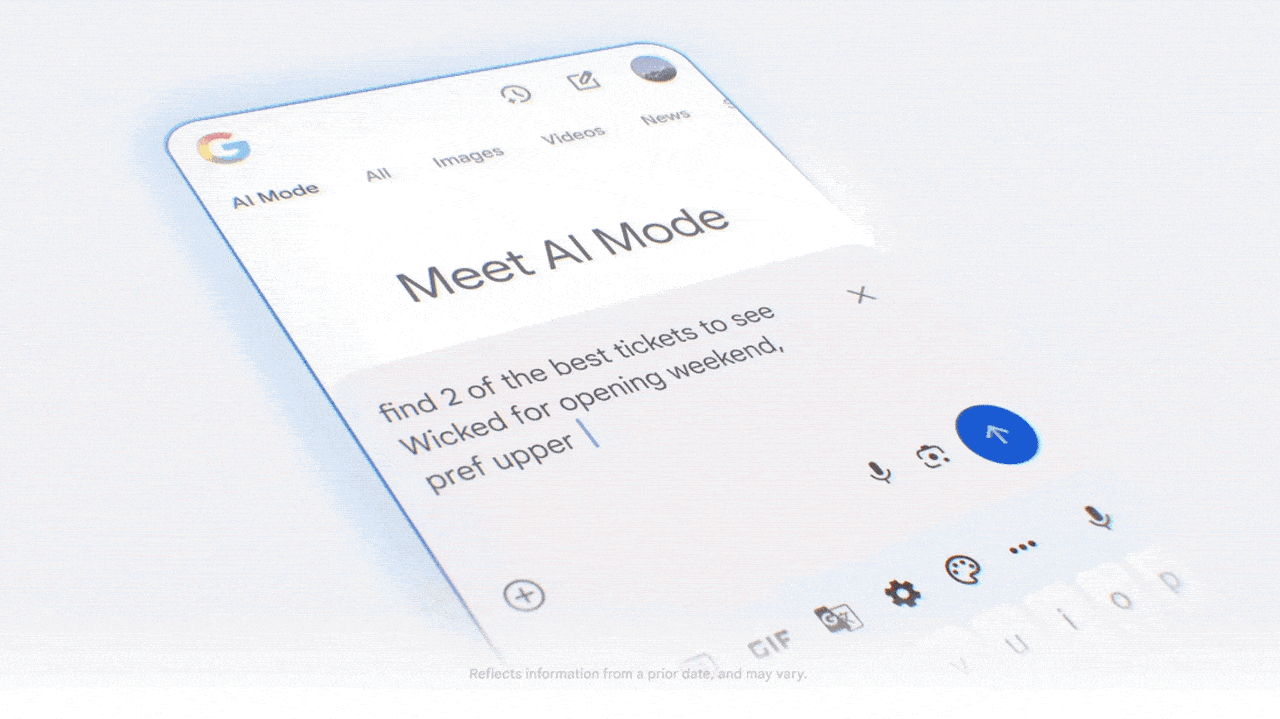Unlocking Omnichannel Marketing: Mastering Social Media Strategies

Key Takeaways

- Omnichannel Integration: Utilize various platforms for a cohesive customer experience, embracing social media to connect with your audience effectively.
- Enhanced Engagement: Leverage the power of video content, stories, and targeted ads on social media to increase brand visibility and foster meaningful interactions.
- Consistency is Key: Maintain a consistent brand voice and storytelling approach across all channels to build stronger customer relationships and loyalty.
- Measure Success: Track key performance indicators (KPIs) like engagement rates and conversion metrics to refine your social media strategy and enhance overall effectiveness.
- Embrace Future Trends: Stay ahead by adopting shoppable posts, AI-powered recommendations, and interactive live-stream shopping to elevate customer engagement and drive conversions.
In today’s fast-paced digital landscape, connecting with your audience requires more than just a single channel approach. Omnichannel marketing integrates various platforms to create a seamless experience, and social media plays a pivotal role in this strategy. By leveraging multiple touchpoints, you can enhance customer engagement and drive conversions like never before.
Imagine reaching your customers where they are, whether it’s on Instagram, Facebook, or Twitter. With an effective omnichannel strategy, your brand can deliver consistent messaging and personalized interactions that resonate with your audience. This approach not only boosts brand loyalty but also maximizes your marketing efforts, ensuring you’re not just heard, but truly understood. Let’s dive into how you can harness the power of social media within your omnichannel marketing strategy.
Understanding Omnichannel Marketing

Omnichannel marketing integrates various platforms to create a unified customer experience. For small businesses, this strategy enhances brand awareness and drives engagement across social media channels like Facebook, Instagram, and Twitter. By utilizing multiple avenues, you can maintain a consistent brand voice, fostering stronger customer relationships.
Effective social media strategy involves content creation that resonates with your target audience. Utilize video content, Instagram stories, and user-generated content to engage community members. Audience targeting through social media ads further amplifies your outreach, maximizing both organic growth and paid social efforts.
You can schedule posts and monitor engagement rates using social media tools. Regular analytics help assess your social media campaigns’ success. Adjusting based on customer feedback and social media trends ensures content optimization. Emphasizing storytelling in your messaging creates connections that enhance customer interaction, leading to higher social media followers and ROI.
Implementing these elements cultivates a cohesive online presence that engages customers at every touchpoint. By strategically employing various social media platforms, you can grow your small business while ensuring brand consistency and elevated community management across channels.
Importance of Social Media in Omnichannel Marketing

Social media plays a vital role in your omnichannel marketing strategy, offering an essential platform to connect with your audience. With over 3 billion users engaging daily, platforms like Facebook, Instagram, and Twitter enhance your brand’s visibility and foster customer relationships.
Enhancing Customer Experience
Social media improves customer experience by providing multiple touchpoints for interaction. Visitors expect a seamless journey across channels, including social media, email, and in-store experiences. By delivering personalized content through regular posts, stories, and engagement, you create a consistent brand presence that meets customer expectations. Utilize social media tools to schedule posts and monitor engagement rates accurately. This approach helps in crafting a content calendar that aligns with customer needs and preferences.
Building Brand Loyalty
Social media marketing strengthens brand loyalty. Engaging your audience with meaningful content—such as video content, user-generated content, and influencer partnerships—builds trust. Tailor your brand voice through effective storytelling and consistent messaging across platforms. Leverage social media ads for targeted outreach, focusing on audience targeting to attract relevant customers. By actively managing your community and responding to customer feedback, you encourage social media followers to become brand advocates. This engagement boosts your online presence and contributes to long-term brand consistency.
Strategies for Effective Omnichannel Marketing on Social Media

Social media plays a vital role in your omnichannel marketing strategy, promoting customer engagement across various platforms. Leveraging platforms like Facebook, Instagram, and Twitter allows for higher brand awareness and enhanced customer interactions.
Integrating Channels
Integrating social media with other marketing channels creates a seamless customer experience. Cross-promotion between social media and your website or email newsletters increases visibility. For example, direct users from your Instagram posts to your sign-up page for email newsletters. Utilizing social media tools for scheduling posts can optimize timing and ensure consistent messaging across channels. By engaging on platforms like Facebook groups or LinkedIn, your brand can maintain a cohesive narrative that resonates with your audience.
Consistent Branding
Consistent branding reinforces your brand voice and messaging across all platforms. Ensure your visual identity, tone, and values align with your social media posts. Maintaining this consistency in a content calendar helps you create posts that reflect your brand’s storytelling approach. Use social media ads to target specific demographics, enhancing your engagement rate and organic reach. Encourage user-generated content to showcase authentic interactions and build community trust. Monitor community feedback and reviews to adapt your strategy and stay relevant with social media trends, ultimately boosting your online presence and social media growth.
Measuring Success in Omnichannel Marketing

Measuring success in omnichannel marketing requires focusing on key performance indicators (KPIs) to evaluate your social media strategy. By tracking specific metrics, you can determine how effective your social media marketing campaigns are in increasing brand awareness and driving conversions.
Brand Awareness and Engagement
- Social Media Engagement: Monitor likes, shares, mentions, and comments to assess audience interaction with your brand on platforms like Facebook, Instagram, and Twitter. This data reflects your visibility and the impact of your brand awareness initiatives.
- Website Traffic: Analyze the number of visitors arriving at your website through your social media campaigns. This insight highlights the effectiveness of your brand awareness efforts and content creation strategies.
Conversions
- Conversion Rate: Calculate the conversion rate by dividing the number of unique visitors converting into customers by the total number of unique visitors. This metric is vital for understanding how well your omnichannel approach drives actual sales.
Additional Metrics to Consider
- Engagement Rate: Measure engagement to create a clear picture of how well your social media posts resonate with your audience. High engagement often signals strong content alignment with customer interests.
- Social Media Analytics: Utilize analytics tools to track the performance of your social media campaigns. This helps you refine your social media strategy based on customer feedback and emerging trends.
- Content Calendar: Develop a content calendar for scheduling social media posts. Consistency in posting helps maintain audience interest and encourages organic reach across different platforms.
By consistently tracking these metrics, you’ll enhance your small business’s social media growth, optimize community management, and ultimately improve your online presence and brand consistency.
Future Trends in Omnichannel Marketing and Social Media

Social media platforms play a pivotal role in shaping the future of omnichannel marketing. Here’s what to watch:
- Shoppable Posts and Product Tags: Instagram, TikTok, and Facebook enable you to use product tags in posts, allowing customers to discover and purchase products without leaving the app. This streamlines the shopping experience and boosts conversion rates.
- AI-Powered Product Recommendations: Platforms will utilize AI to suggest products based on user interactions. By integrating these recommendations into your social media strategy, you can enhance customer engagement and increase sales.
- Interactive Live-Stream Shopping: Live-stream shopping on social media offers real-time engagement. You can showcase products live, answer questions, and encourage immediate purchases, enhancing customer interaction and experience.
- Strong Focus on Community Management: Engaging your audience through Facebook groups or TikTok communities enhances brand loyalty. By actively managing these communities and responding to feedback, you build trust and elevate your brand voice.
- Increased Use of User-Generated Content: User-generated content promotes authenticity. Encourage customers to share their experiences with your products on social media. This powerful strategy not only increases brand awareness but also drives organic growth.
- Video Content Dominance: Short-form videos on platforms like Instagram and TikTok capture attention quickly. This trend emphasizes the importance of content creation that engages viewers and reflects your brand’s story.
- Social Media Ads Optimization: Invest in paid ads on platforms like Facebook, Instagram, and LinkedIn for targeted outreach. Utilize audience targeting tools to reach potential customers effectively, ensuring your ads yield high engagement rates.
- Hashtags and SEO Strategies: Implementing relevant hashtags boosts your content’s visibility on social media. Research trending hashtags in your niche and incorporate them into your posts for organic reach.
- Analytics-Driven Decisions: Analyzing social media analytics provides insights into what strategies work. Use these metrics, such as engagement rates and conversion tracking, to refine your content calendar and optimize future campaigns.
These trends highlight the critical role of social media in your omnichannel marketing strategy. By leveraging these insights, you can enhance your online presence and ensure your small business thrives in the digital landscape.
Conclusion

Embracing omnichannel marketing through social media is essential for your brand’s growth and customer engagement. By connecting with your audience across multiple platforms, you create a cohesive experience that fosters loyalty and trust.
Utilizing effective strategies like personalized content and community management can significantly enhance your brand’s visibility. As you adapt to trends and monitor performance metrics, you’ll refine your approach and optimize your outreach.
Investing in these practices not only boosts your online presence but also positions your business for long-term success in a competitive digital landscape. Stay proactive and responsive to your audience’s needs to ensure your brand thrives.
Frequently Asked Questions

What is omnichannel marketing?
Omnichannel marketing is a strategy that connects with audiences across multiple platforms to create a seamless customer experience. It integrates various channels like social media, email, and in-store interactions, ensuring consistent messaging and personalized engagement.
Why is social media important for omnichannel marketing?
Social media plays a critical role in omnichannel marketing by fostering customer relationships and enhancing brand visibility. With over 3 billion daily users, platforms like Facebook, Instagram, and Twitter enable businesses to engage customers through relevant and meaningful content.
How can small businesses benefit from omnichannel marketing?
Small businesses can enhance brand awareness and drive customer engagement through omnichannel marketing. By utilizing various platforms and delivering personalized interactions, they can boost loyalty and maximize their marketing efforts, leading to increased sales.
What are effective social media strategies for omnichannel marketing?
Effective strategies include creating engaging content, utilizing video and Instagram stories, and encouraging user-generated content. Targeting audiences through ads and monitoring engagement rates are also essential for optimizing social media efforts.
How can businesses measure the success of their omnichannel marketing efforts?
Businesses can track key performance indicators (KPIs) such as social media engagement metrics, website traffic from campaigns, and conversion rates. Monitoring these metrics helps evaluate the effectiveness of omnichannel strategies and refine approaches based on customer feedback.
What future trends should businesses watch for in omnichannel marketing?
Future trends include shoppable posts, AI-powered product recommendations, and interactive live-stream shopping. These innovations enhance customer engagement and streamline the shopping experience, making it crucial for businesses to stay updated on these developments.
How does community management enhance brand loyalty?
Active community management, including responding to feedback and fostering group interactions, helps build trust and loyalty among customers. Engaging with communities on platforms like Facebook and TikTok strengthens brand connections and encourages meaningful relationships.
Image Via Envato
This article, "Unlocking Omnichannel Marketing: Mastering Social Media Strategies" was first published on Small Business Trends
What's Your Reaction?
 Like
0
Like
0
 Dislike
0
Dislike
0
 Love
0
Love
0
 Funny
0
Funny
0
 Angry
0
Angry
0
 Sad
0
Sad
0
 Wow
0
Wow
0































































































